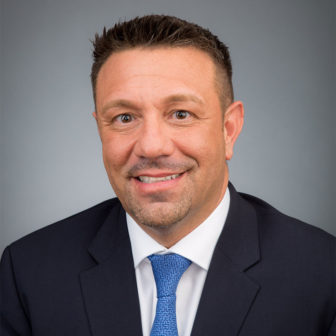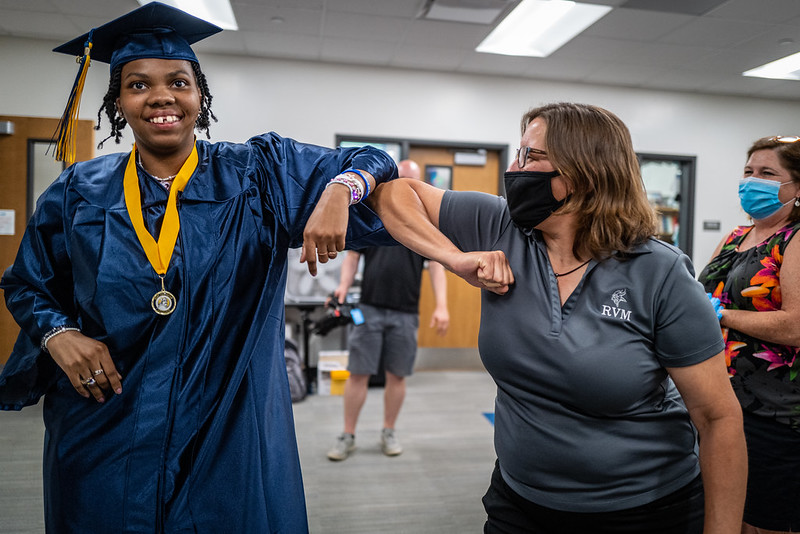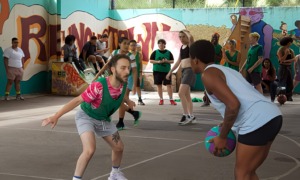When Sarah Farmer’s daughter, who is intellectually disabled and has mental illness, was approaching her 18th birthday, the mom and child sat down for some frank talk about the future. The daughter, now 27, but functioning, in some ways, like a 10-year-old, made clear that she wasn’t up to handling her grown-up affairs.
 “I knew she wasn’t capable of taking care of herself as an adult, but I wanted her to have a say in the matter,” Farmer said. “I asked whether she wanted to visit doctors by herself and talk with them about her body and health, and whether she wanted to take care of her money by herself, including paying her rent, paying bills and budgeting money. She looked a bit scared and said, ‘I don’t know how to do all that, and doctors scare me. Please don’t make me do that.’”
“I knew she wasn’t capable of taking care of herself as an adult, but I wanted her to have a say in the matter,” Farmer said. “I asked whether she wanted to visit doctors by herself and talk with them about her body and health, and whether she wanted to take care of her money by herself, including paying her rent, paying bills and budgeting money. She looked a bit scared and said, ‘I don’t know how to do all that, and doctors scare me. Please don’t make me do that.’”
So, Farmer, hiring a lawyer, petitioned to become the legal guardian of Grace, ensuring that her officially adult daughter’s everyday affairs would be taken care of, but also that she didn’t fall prey to unscrupulous individuals..
“I am acquainted with multiple mentally disabled adults with no legal guardian, and I have seen the pain, hardship and dangers that can lead to,” said Farmer, of Boston.
Farmer is among the legal guardians — parents, siblings and other close relatives or friends — assigned to oversee and ensure the health, safety and general well-being of more than 1 million U.S. adults with disabilities and their more than $50 billion in assets. Given that abuse and fraud do occur, organizations such as the Disabilities Rights Fund do monitor this field.
It’s important to note, Farmer said, that guardianships also can be temporary. “You can dissolve it. It doesn’t have to be for life.”
Where possible, guardianship rulings give the disabled some say-so in their own lives
Farmer said the process, for her, was fairly easy. It required the mother and daughter, who has bipolar disorder, post-traumatic stress disorder and was born with fetal alcohol syndrome, to file an assortment of medical records, including ones from a psychiatrist, in court and appear in front of a judge who hears from the guardian applicant and the person whose affairs they aim to take charge of.
“There are many stages along the way when the person can contest and say, ‘I don’t want this,’” Farmer said. “They have to agree to it.”
“There has to be clear and convincing evidence,” said guardianship attorney Frank Perrone, of Davidoff Hutcher & Citron in New York City, “that, absent the guardianship, the individual will likely suffer harm and also cannot understand or appreciate the nature of their inabilities.”

New York guardianship lawyer Frank Perrone
Guardianship laws do vary from state to state, said Jeff Yussman, president of Special Needs Alliance, a national organization that, among other things, maintains a roster of attorneys serving disabled clients and their families and weighs in on public policy regarding their care.
Lawyer Stuart Schoenfeld, also of a New York, said that his state has two kinds of guardianships: One for someone who has been disabled since birth and can’t handle finances, health care decisions and other aspects of independent living; and another for someone who, for example, was in a car accident or is on the autism spectrum but might be more capable of making his or her own decisions.
While the former type of guardianship takes a necessary, one-size-fits-all approach, Schoenfeld said, legal professionals increasingly have been focused on allowing disabled people as much autonomy as possible, even if they’re assigned a guardian. “Most people want their child to have the best life they can with the most limited number of restrictions,” he said, “so they can feel like they are an independent adult … That’s important.’”
Guardianship lawyer mom: Parents want and need “safety net” for their offspring
Salt Lake City, Utah, lawyer Lisa Thornton, who recently became guardian of her own disabled daughter, handled the legalities for Sarah and Grace Farmer.
“Most parents — the vast majority of parents — are caring, loving people and they want their adult children to fly as high as they can go,” Thornton said. “But they want that safety net under them, to catch them if there’s anything that comes up or any problem happens.”
Her 18-year-old daughter has Prader-Willi syndrome, a rare genetic disorder whose symptoms include preventing a person from feeling full. Left unchecked, her daughter will eat to the point that she ruptures her stomach and vomits, Thornton said.
“None of us want to live with our parents, but many who are incapacitated make poor decisions,” she said. “They might have food insecurity or lack a good place to live … ”
In most cases, the legal process for establishing guardianship begins about two months before someone turns 18, Thornton said. In Utah, potential guardians can hire an attorney or, on their own, file medical records, school psychological reports listing IQ and intellectual functioning and so forth.
Also, Utah courts require proof of how well a disabled person reasons, resolves things and other aspects of their cognitive ability, Thornton said.
As in other states, Utah also prioritizes who should be a guardian. “Your neighbor next door is not going to have the same priority as a parent would or as a sibling would,” she said.
Also, she added, the process sometimes can feel demeaning for a parent: “Here you have a child … who has been severely disabled since birth, and you’ve disrupted your life and you’ve spent thousands and thousands of dollars taking care of them … And, then, you have to go into court and pay a lot of money and have attorneys there and have a judge say, ‘You can keep taking care of them.’”
In addition, some youth whose families were seeking guardianship thought they were in trouble because the cut-and-dry nature of courtrooms, itself, can seem scary, she said.






























